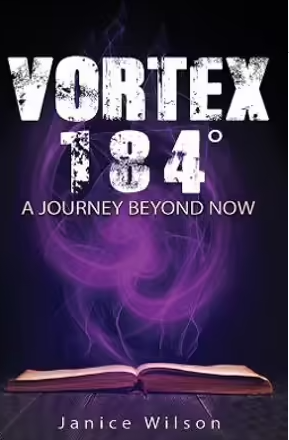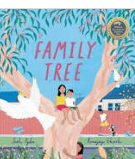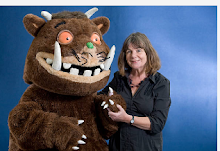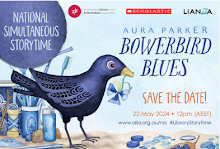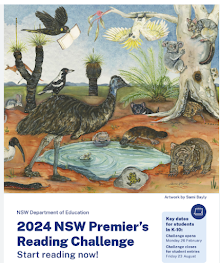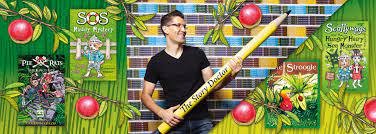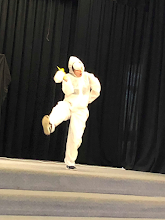Term two has begun with much interest and excitement in the new books, learning programs and activities in the library. We have enthusiastic students enjoying the library during first half lunch on Tuesdays and Wednesdays. We also have a large number of volunteers to be library monitors.
National
Simultaneous Storytime
We are all
looking forward to National Simultaneous Storytime on Wednesday May 24th.
The book that we will enjoy this year is Speedy Sloth by Rebecca Young and
Heath McKenzie.
ALIA explains the event as follows:
National
Simultaneous Storytime (NSS) is held annually by the Australian Library and
Information Association (ALIA). Every year a picture book, written and
illustrated by an Australian author and illustrator, is read simultaneously in
libraries, schools, pre-schools, childcare centres, family homes, bookshops and
many other places around the country. Now in its 23nd successful year, it is a
colourful, vibrant, fun event that aims to promote the value of reading and
literacy, using an Australian children's book that explores age-appropriate
themes, and addresses key learning areas of the National Curriculum for
Foundation to Year 6.
Event
Information
NSS
receives positive media coverage and generates a great deal of community
interest. 2022 was our biggest and most successful NSS to date with over 2.18
million participants at over 59, 000 locations! (Australian Library and Information
Association 2023).
Kindergarten
The students
will undertake an author study of the work of Nick Bland. Author studies allow
students to dive deeply into an author’s body of work. The students can
critically evaluate the author’s themes and characters.
Nick Bland
is one of our foremost Australian authors for children. His work which is
loaded with engaging rhythm and rhyme and colourful illustrations which support
the texts results in a sense of adventure and enjoyment for all readers. This
term the students in early stage one will study ten books by Nick Bland. It is
expected that, as the students are exposed to such language features as rhyme,
repetition, alliteration and personification supported by high quality
illustrations they will be entertained and inspired to write creatively.
Stage One
The students
in Stage One will be introduced to chapter books in this course of study. The
books will be presented on the interactive whiteboard for group reading.
Discussion sessions will take place after the reading of each chapter and the
students will then respond to the text with a related activity.
The students
will be encouraged to investigate the many chapter books in the library
collection and borrow texts at their individual reading levels.
Information
Fluency
Information
fluency is the ability to critically think while engaging with, creating and
utilising information and technology, regardless of the information platform or
medium.
Texts
provide the means for communication. Students need to access, understand,
analyse and evaluate information, make meaning, express thoughts and emotions,
present ideas and opinions, interact with others and participate in activities
at school and in their lives beyond school. Success in any learning endeavour
depends on being able to make meaning from information. (Information Fluency Framework. NSW Det)
Stage Two
The students
will participate in research tasks using programs of study created in Stile.
They will begin with a research project on the topic of ANZAC Day. Subsequent research projects will be in line with classroom learning.
Stage Three
The students
will undertake a research project about World War 2 which is designed to build
upon their background knowledge directly related to the novel Sydney Under
Attack by Sophie Masson which they studied in Term
One.

.jpg)


